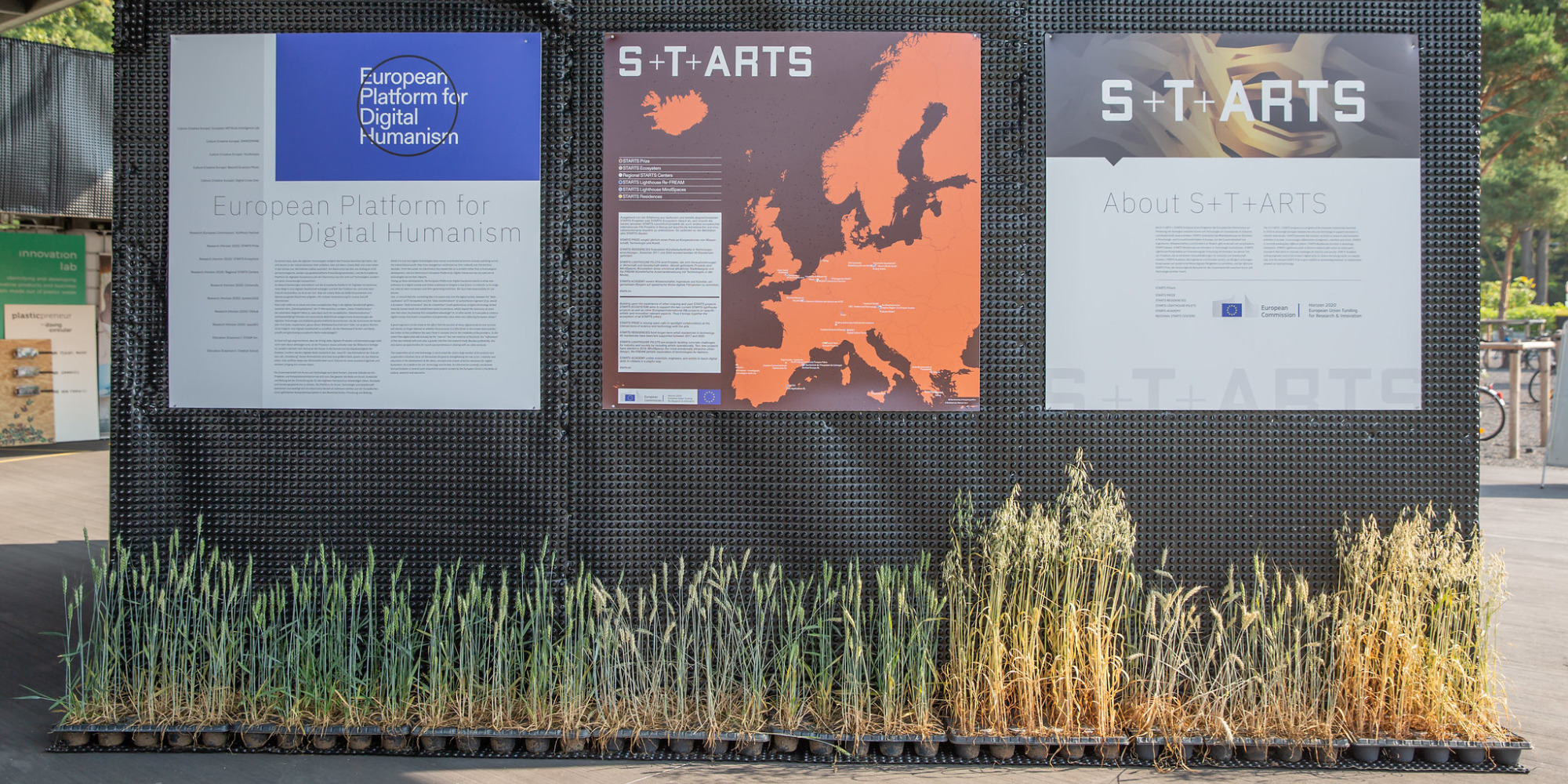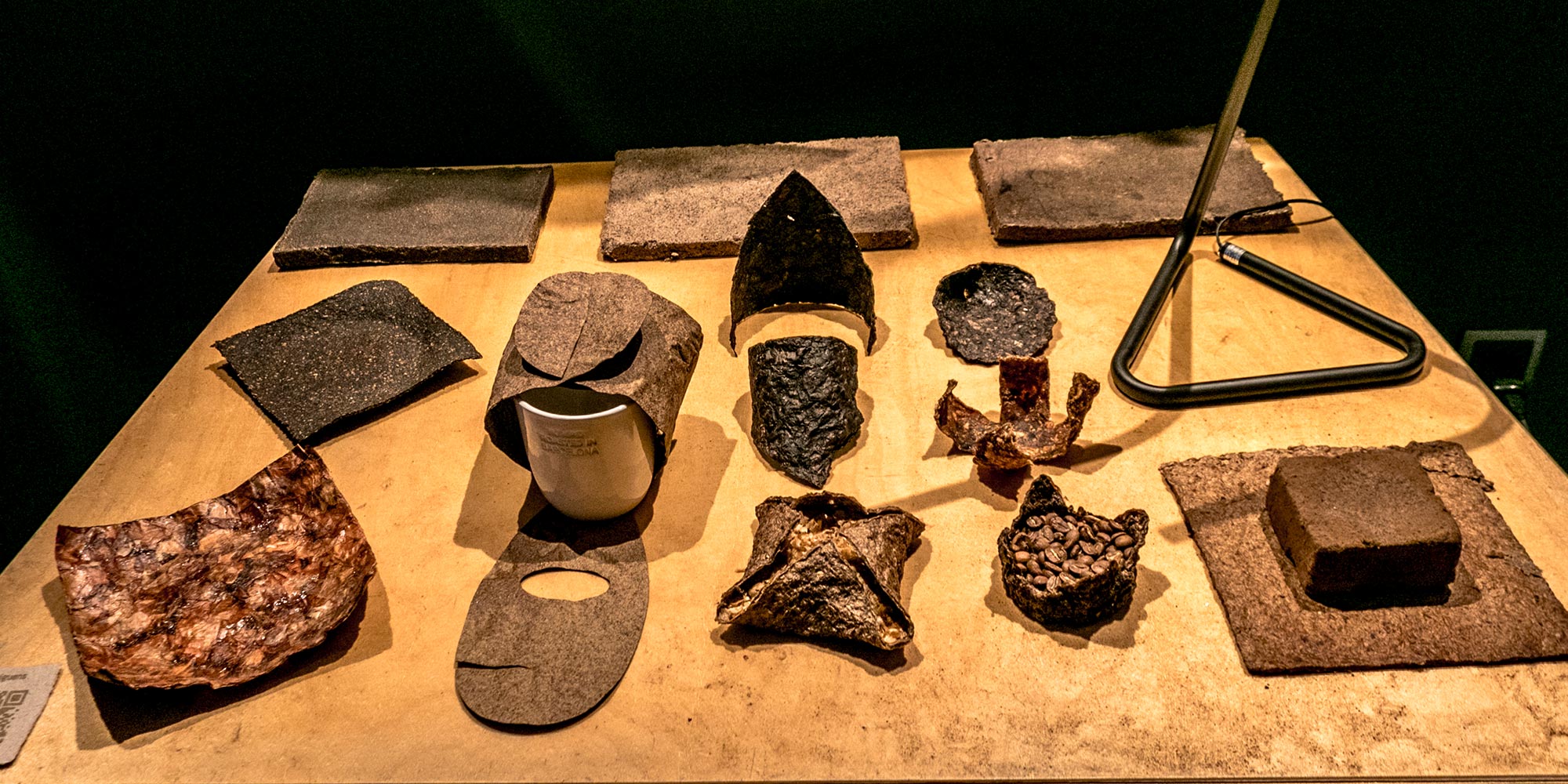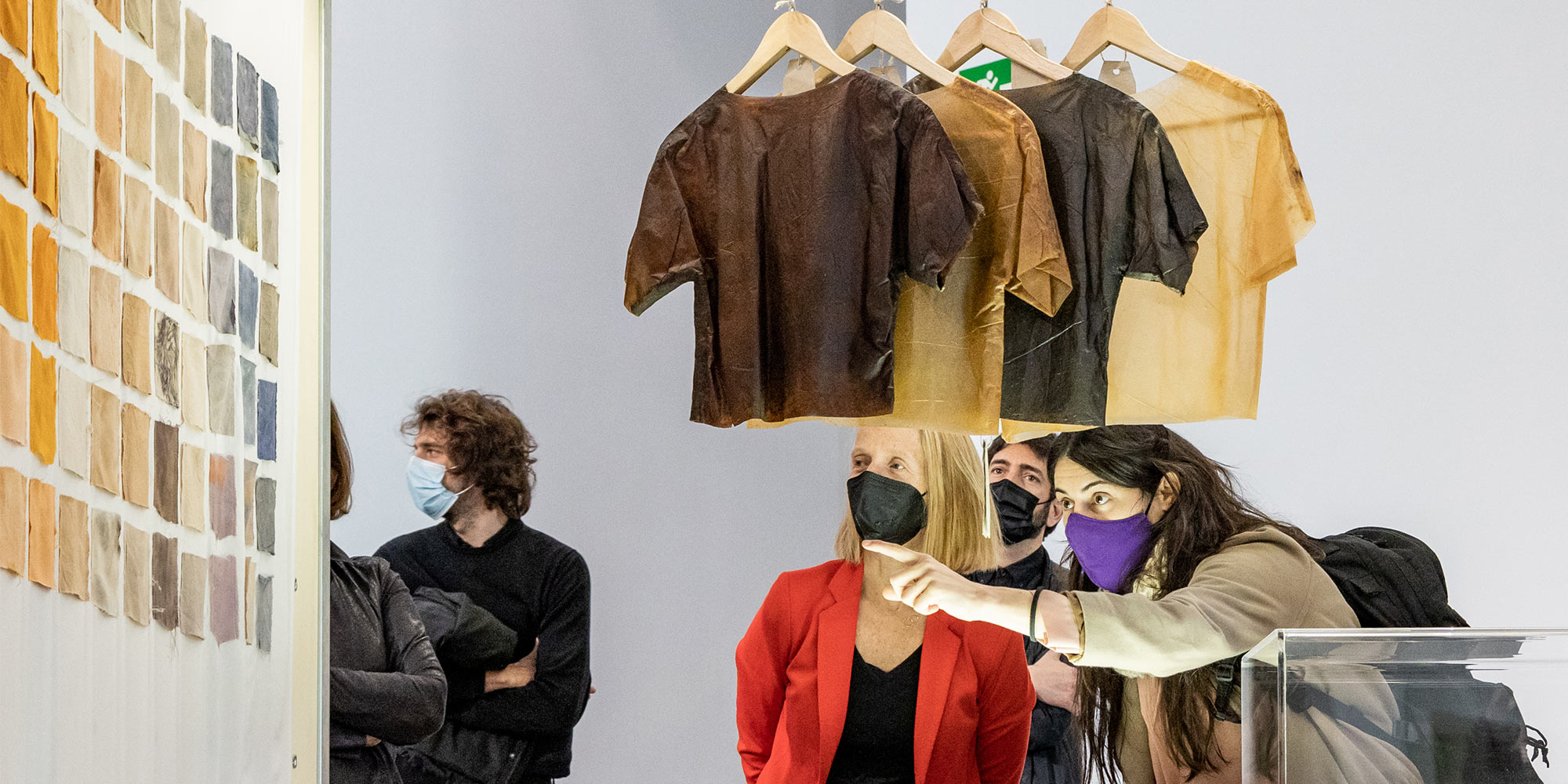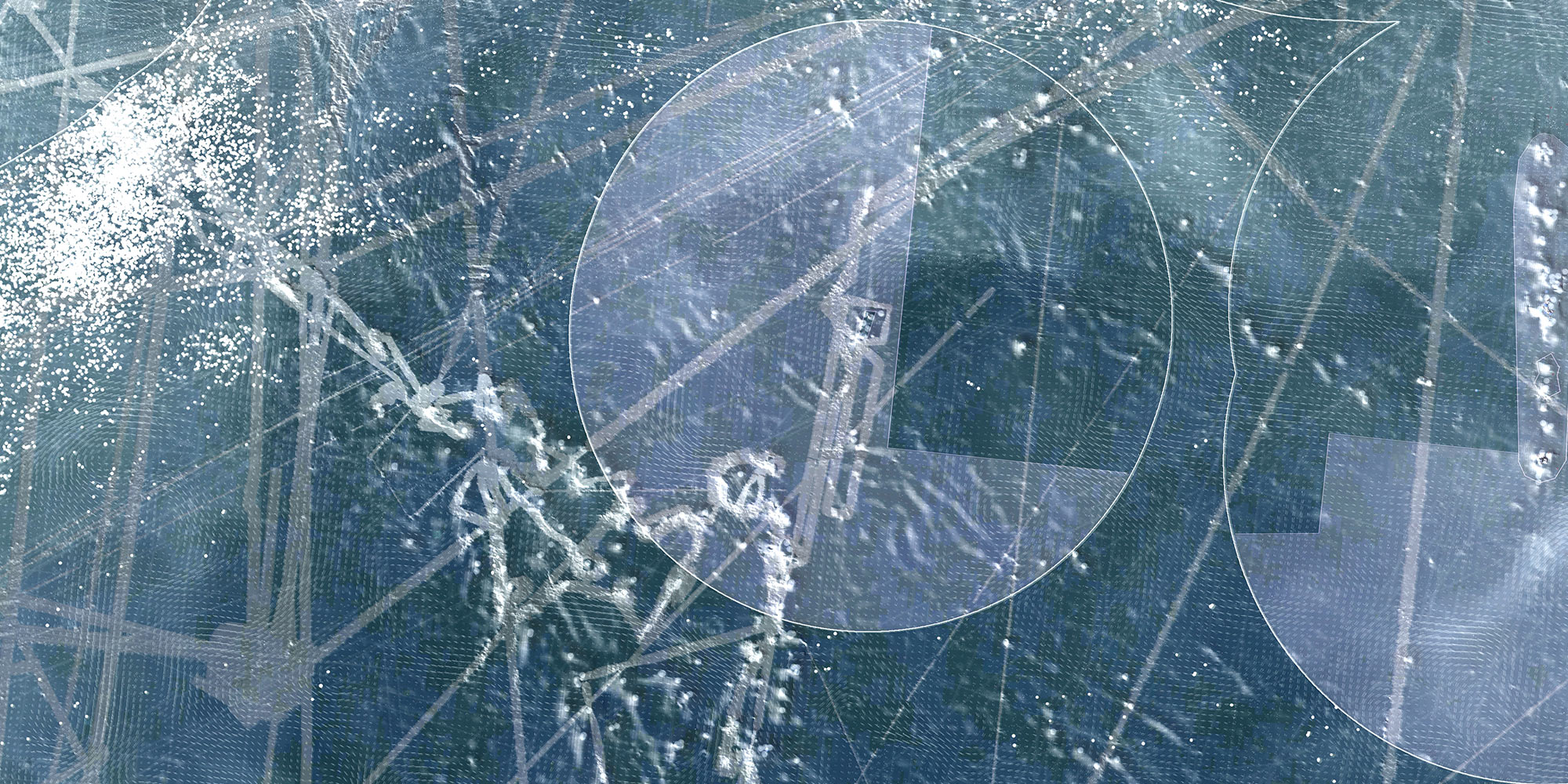by Ana-Maria Carabelea
Yet, digital technology remains unsettling to many. Not for nothing, as the digital age progresses, carrying humanity along with it, and digitization moves from the industrial into the domestic and social realm, the need for a change of direction becomes imperative.
As it pervades our everyday lives, technology brings about the risk of increased surveillance and curtailment of universal rights. The digital world is multi-faceted, currently caught between data capitalism, data authoritarianism, and inclusiveness in the form of democratic access to information. With no values inscribed in technology, its potential remains limitless for better or for worse. This calls for a more active involvement on the part of humanity in designing and using technology in ways that are aligned with its values. It is time for humanism to put its mark on the digital world. Far from being a call to restore the old-time values of European humanism, this is a call to critically explore and define new sets of values that are better suited for our present times and lead to the futures we want to enact.
To build trust in technology, a simple change of narrative is not enough. Rather, we need to rethink the process of technological development so that it results in more trustworthy technologies. The increasing influence of digital technologies on our culture must be met with the engagement of diverse perspectives that consider the implications of digitisation for the wider cultural context. We believe art is the missing link towards more empathetic ways of envisioning the digital future and artists are the critical and creative minds that can make demands on behalf of humanity. Digital humanism comes to ensure that innovation addresses human needs, upholds humane values, and respects the heterogeneity within society.
If art can be “prophetic in the sense that it predicts scientific and technological revolutions that have not yet taken place” (Daniel Birnbaum, More than Real), this prophetic character is not to be understood as the work of a passive visionary that takes its cues from the present to predict their future consequences. Within digital humanism, artists take on an active role in spawning innovation, bringing to light things that might not yet be visible and visualize scenarios that are only in potentia in the present, enacting the future it imagines. Engaging artistic perspectives can speed the process of innovation and development of modern technologies but also change its course, leading it on a more humane path that is now so necessary. Only then, can digitisation become less unsettling and digital technology better connected to its users, contributing to more democratic and inclusive societies.

The STARTS Prizes – part of the STARTS Initiative, as well as the Award for Digital Humanism are only some of Ars Electronica’s programmes that support and celebrate artists and projects that address the need for art-driven, human-centred innovation. By awarding collaborations between actors from diverse backgrounds we underline the importance of creating spaces for dialogue between different perspectives, finding points of intersection and exercising empathy to spark innovation. Moreover, these awards place tangible results in the limelight to create a better understanding of the value such dialogues can bring.
The STARTS Prize is a pillar of the STARTS Initiative, a programme supported and funded by the European Commission as a response to the specific challenges of the present moment and the need for imaginative solutions to them. The STARTS Prize seeks to offer visibility and financial support to projects at the intersection between arts, technology and science that promise to bring about shifts in the current paradigm. Acknowledging that new frameworks are needed for durable change, the Grand Prize for Innovative Collaboration awards projects that set up new ways of working together at the intersection between art, technology and science. In that same spirit, The Grand Prize for Artistic Exploration encourages artists to take on an active role and engage with technology and science in their artistic endeavours in ways that redefine its use, deployment, or perception.
In 2021, the Grand Prize for Innovative Collaboration went to Remix el Barrio, a project hosted by FabLab in the neighbourhood of Poblenou, Barcelona as part of the SISCODE project funded by the European Union’s Horizon 2020.
Remix el Bario gathered designers from diverse backgrounds to produce new materials that address two of the biggest environmental issues of our times: the increasing plastic production and plastic waste, and food waste.

Once marketed as “the material of a thousand uses” plastic has become a single-use solution across manufacturing industries. Author Susan Freinkel reminds us that “in product after product, market after market, plastics challenged traditional materials and won, taking the place of steel in cars, paper and glass in packaging, and wood in furniture. (Susan Freinkel, Plastics: A Toxic Love Story)” As a result, plastic production has increased by 620% in the last 30 years. At the same time, many make the case that plastic packaging helps tackle an even bigger environmental issue: food waste. In Catalonia alone, 720,000 kg of food is thrown away every day. The 260,000 tons of food wasted in an entire year would meet the needs of 500,000 people for that year.
In their initiative, Remix el Bario addresses these interconnected issues by repurposing food waste to produce new biomaterials and reduce the need for plastic. Fab Lab Barcelona provided the designers with the labs, materials, and tools to implement their ideas.
The variety of projects that came out of this framework is testimony to the diverse contribution artists and designers can make to the manufacturing industry in its quest for more sustainable innovation. The designers have explored many paths, from repurposing and using coffee husks for paper and packaging, vegan fruit leather for clothing, olive pits, eggshells, and yerba mate for design objects such as lamps, chairs, and tiles, avocado pits for natural dyes, used oils for soaps and restaurant leftovers for pet snacks.


A sustainable circular economy and manufacturing industry needs to focus primarily on local or regional resources if it is to not only reduce waste but also its own carbon footprint. Thus, the designers sought to localise production and value chains in response to the need for plastic imposed by long food chain supplies.
This project is notable for its innovative potential both in terms of developing biomaterials, and in terms of setting up and self-managing a collaborative frame of work that can be used in the future. Beyond the biomaterials experimented with in this project, Remix El Barrio aims to create a “mix of people, material and social experience” that can create an infrastructure for developing further sustainable solutions. Besides involving designers and creatives in the development of biomaterials, the project has sought the input of local restaurants and markets, policymakers, and communities creating a strong network of local stakeholders.
The Grand Prize for Artistic Exploration was awarded to Territorial Agency for their project Oceans in Transformation. The London-based independent organisation promotes and works for sustainable territorial transformations. In an urbanised world, their work draws attention to how our contemporary polities and modes of organisation transform the physical structures of the territories we inhabit, leading to climate change.

Oceans in Transformation offers a visual representation of different sets of data gathered about a space that remains largely unknown to date: the ocean. In a global effort to increase the percentage of the mapped seafloor from the current 17 percent to 100 percent by 2030, the oceans are now sounded and measured by a growing number of scientists, institutions, and research centres using a wide range of modern technologies. However, the data collected remains limited, often local, and fragmentary and is rarely made available beyond scientific publications and communities.
Territorial Agency uses remote sensing images to highlight the gaps between different knowledge components, areas with no data and areas with contradictory or ambiguous data. The project relies on multiple open-access data sets that are multi-temporal – collected from the 1970s until the present – and span different depths.
The remoteness of oceans, in conjunction with the lack of data create the perception that they are detached from the localities we inhabit and impact. To address this, Oceans in Transformation proposes an understanding of the oceans as a sensorium that records the transformations of the Earth in its complex dynamics, and it inscribes back into the forms of life its own cycles. It shows how the ocean is affected by and affects activity on land.
The project proposes new cognitive modalities of exploring the oceans by connecting two knowledge systems that have thus far been kept separate, the Earth System science and world-system analysis, i.e., the natural world and the cultural world. This approach stems from the need to challenge modern discourses of imperialism and subjugation of the natural world and make visible the outcomes of such discourses and practices. Establishing a link between the two allows us to identify cultural developments as causes for natural developments. Data collection and data visualisation are both vital for understanding the extent to which our actions determine changes in the oceans and the environment at large.

The winners of the Award for Digital Humanity, Branch Magazine also aim to connect the dots between cultural and technological developments and the ever more visible natural developments. The Award for Digital Humanity is funded by Austrian Federal Ministry for European and International Affairs and celebrates projects that encourage cultural exchange and cooperation to humanise the digital world.
Humanising the digital world does not mean solely inscribing humanistic values upon it, in the spirit of the Anthropocene, but also denouncing the separation between the digital and the physical world. Branch Magazine highlights the impressive carbon footprint of our increasingly digital lives, that becomes bigger with every email we send, every product we add to our shopping cart. The use of the internet is indispensable, while remaining unsustainable.
The work done by Branch Magazine aims to transform the internet form a contributor to the climate crisis into a driving force in the fight against it. The magazine aims to drive change by creating a space of reflection and critical engagement with technology so that a more sustainable and just internet is built for the future.
Launched in autumn 2020, the first issue of the magazine included thematic pillars like Solarpunk and Other Speculative Futures, Critical Art and Carbon Aware Design, Sustainable Web Craft, AI Promises and Perils, Climate Action in Tech, as well as Policy and Advocacy. The second issue came out in spring 2021 and added two new themes, that highlight both the progress that is being made (Change is a’ Commoning) and the obstacles (Big Tech Resistance) faced by those attempting to change the way in which the internet works.

The projects awarded this year bring to light the obscured implications of the lives we lead and question their sustainability. They employ the technologies that are sometimes blamed for the challenges faced by society to point to a different side of digital humanism. Apart from demanding for a more-human centred development, use and deployment of technology, digital humanism also underlines the role of human agency and holds humanity accountable for envisioning, developing and using more sustainable technologies.
STARTS is an initiative of the European Commission under the Horizon 2020 research and innovation programme.
The STARTS Prize has received funding from the European Union’s Horizon 2020 research and innovation programme under grant agreement No 956603.
 Ana-Maria Carabelea joined Ars Electronica in 2021 as the Communication Manager for the Regional STARTS Centers. She has previously conceptualised and curated programmes within the cultural and creative industries and is currently researching the interrelation between tech brands, digital artists and audiences as part of an MA in Brands, Communication and Culture at Goldsmiths University of London.
Ana-Maria Carabelea joined Ars Electronica in 2021 as the Communication Manager for the Regional STARTS Centers. She has previously conceptualised and curated programmes within the cultural and creative industries and is currently researching the interrelation between tech brands, digital artists and audiences as part of an MA in Brands, Communication and Culture at Goldsmiths University of London.
